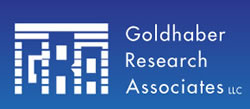12/12/2012· Warnings & Labels
"Warning: Don't Supersize Me," Says NYC
New York City has done it again! Mayor Bloomberg (or as some call him, NYC's Nanny-In-Chief) and his City Health Department has declared war on oversized restaurant portions.
Originally Published in The Goldhaber Warnings Report, May 2012
By: Gerald M. Goldhaber, Ph.D.
Tel: 212-379-6661
Email Dr. Goldhaber
I just came back from my phannacy where I picked up two prescriptions for my seasonal allergies. One was a name brand product and another was a generic. If something bad happened to me as a result of a failure to warn by both of these products, I would be able to sue the manufacturer of the name brand product but not the generic, thanks to a recent Supreme Court ruling that prevents consumers from suing manufacturers of generic phannaceuticals on a failure to warn claim. Despite the fact that my pbacmacist didn't tell me I had fmfeited my legal rights when I purchased the generic product, the Supreme Court made it clear (in a 5-4 vote, in Pliva vs. Mensing, June 23, 2011) that generic drug manufacturers were preempted from such lawsuits because they had to conform to the exact labeling of the name brand drug they were emulating.
Contrary to the Pliva ruling, in a March 5, 2009 ruling (Levine vs. Wyeth), the Supreme Court coucluded that consumers could sue any pharmaceutical company who manufactured a brand name drug on a failure to warn claim (See the March 10, 2009 issue of this newsletter). Accordiog to the New York Times (March 21, 2012), even Justice Clarence Thomas, writing for the majority in 2011, stated that the distinction "makes little sense" to consumers and Justice Sonia Sotomayor who wrote the dissent predicted "absurd consequences" just as a function of whether a prescription was filled with a brand-name or a generic drug. And, this is no small issue in the Uuited States where almost 80% of all prescriptions are fi11ed today with a generic product (and most states allow a phacmacist to give out a generic instead of a brand-name product).
There are two possible solutions to this absurd interpretation of the law. Since the Supreme Court based its ruling in Pliva on its interpretation of the 1984 Hatch-Waxman Act (which allowed generics to skip the lengthy FDA approval process if they could show that their product was identical to the brand-name product AND if it used the same label as the brand-name drug). If a generic manufacturer had no say in the labeling, then the Supreme Court reasoned that they could not be held accountable for any shortcomings in those warnings. Although Congressman Henry Waxman, who co-wrote the Act, has recently stated that "Congress did not intend for consumers' rights to be categorically elimtinated" because they purchased a generic instead of a brand-name drug, Congress would have to amend the 1984 Act. A second solution would be for the FDA to amend its regulations and allow generic manufacturers to change a drug's warning labels.
Since this is an election year and health care is bound to be one of the hot button issues, and generics usually cost significantly less to purchase than name brand drugs, don't hold your breath expecting either Congress or the FDA to act! In the meantime, if you want to protect your legal rights, avoid generic drugs.
Feel free to pass this newsletter on to any interested friends or colleagues.
Dr. Gerald M. Goldhaber, the President of Goldhaber Research Associates, LLC, is a nationally recognized expert in the fields of Political Polling and Warning Label Research. His clients include Fortune 500 companies, as well as educational and governmental organizations. He has conducted hundreds of surveys, including political polls for candidates running for U.S Congress, Senate, and President. Dr. Goldhaber also served as a consultant to President Reagan's Private Sector Survey for Cost Control.
©Copyright - All Rights Reserved
DO NOT REPRODUCE WITHOUT WRITTEN PERMISSION BY AUTHOR.

12/12/2012· Warnings & Labels
"Warning: Don't Supersize Me," Says NYC
New York City has done it again! Mayor Bloomberg (or as some call him, NYC's Nanny-In-Chief) and his City Health Department has declared war on oversized restaurant portions.

2/18/2010· Warnings & Labels
Should Cellphones Have Warning Labels?
The Goldhaber Warnings Report: On January 2, of this year, The New York Times published an article about the possibility of heavy cellphone use being linked to brain cancer. Since approximately 280 million people use cellphones

7/13/2012· Warnings & Labels
Product Warnings: The Wackiest Warnings of 2011
By: Gerald Goldhaber
The awards season is already in full gear this year. The Golden Globes have already been given out and the Oscars will be determined by the end of this month.




